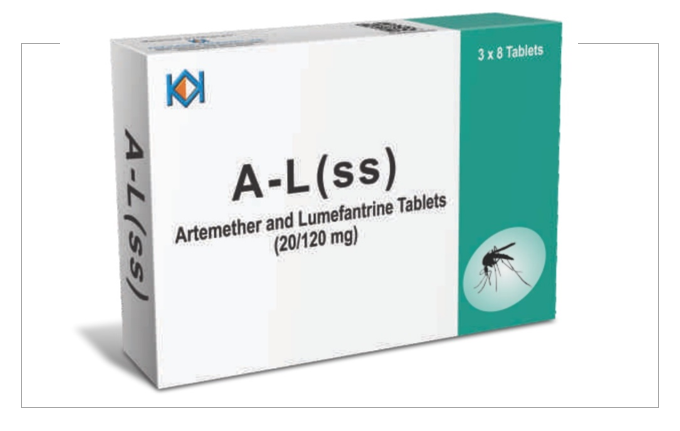
RESISTANCE: Scientists recommend “combination therapy” for treating malaria

Given the increasing resistance of malaria-transmitting mosquitoes to certain medications, scientists have underscored the use of combination therapy, particularly artemisinin-based combination therapy (ACT), for treating uncomplicated malaria.
The scientists, from various research and academic institutions in Tanzania and Sweden, including Ifakara Health Institute, alongside other organizations shared these recommendations after conducting two separate studies in Tanzania in 2018 and 2019.
The vital role of combination therapies
The studies demonstrated the vital role of combination therapy drugs, particularly artemether-lumefantrine (AL), which was proven to be effective and safe. Published on the Malaria Journal, these findings highlight AL's efficacy in fighting malaria, noted the scientists.
"Artemisinin-based combination therapy (ACT) has been a major contributor to the substantial reductions in global malaria morbidity and mortality over the last decade," the scientists reported, noting that "the most commonly used artemisinin-based combinations in Africa are artemether-lumefantrine (AL) and artesunate-amodiaquine (ASAQ)."
Following the World Health Organization (WHO)'s recommendation to use artemisinin-based combination therapies for malaria treatment, artemether-lumefantrine has become the most widely used option in Africa, including Tanzania, where it was introduced in December 2006.
Two studies, similar outcomes
In the two studies in Tanzania, scientists aimed to assess the efficacy and safety of AL for treating uncomplicated malaria. The findings from both studies showed that AL is effective and safe for malaria treatment.
In the first study in 2018, the scientists conducted a trial assessing AL's efficacy and safety on 349 children across four study sites in Pwani, Morogoro, Tanga, and Kigoma regions. The drug was well tolerated with no serious adverse events reported, except for common side effects such as cough, runny nose, abdominal pain, and fever.
“The observed high cure rates of more than 97% and high safety profile at all study sites suggests that AL is still efficacious and safe in these study sites after its widescale use in Tanzania.”
Similarly, a subsequent 2019 study reaffirmed these findings, highlighting AL's efficacy in treating uncomplicated malaria. Conducted across four of the eight National Malaria Control Programme (NMCP) sentinel sites across the country, in Mwanza, Mbeya, Tabora and Mtwara, the study enrolled over 600 children and monitored their progress over 28 days to assess drug efficacy.
Once again, AL emerged as a reliable treatment option, demonstrating high rates of treatment completion and minimal adverse events.
“This study also showed that AL was well tolerated with mild adverse events… The study findings show that AL, the recommended first-line ACT for the treatment of uncomplicated falciparum malaria in Tanzania, is still highly efficacious, with a PCR-corrected cumulative cure rate ranging from 97% to 100%.”
Cases of recurrent infections
While AL proved to be highly effective and safe in both studies, cases of recurrent infections were observed in certain regions, raising concern that some patients got malaria again after treatment. The scientists attributed recurrent infections to new infections rather than the treatment not working, emphasizing the need for additional interventions to prevent reinfection.
“The high number of recurrent infections was mainly due to new infections, indicating the necessity of utilizing alternative artemisinin-based combinations, such as artesunate-amodiaquine, which provide a significantly longer post-treatment prophylactic effect.”
Continuous monitoring urged
In light of these findings, both studies underscored the importance of regular assessment of malaria treatment efficacy, echoing the recommendations made by the WHO after reports of artemisinin resistance in the Greater Mekong sub-region and its confirmation in East Africa - in Rwanda and Uganda.
According to scientists, regular assessment is particularly crucial given the growing challenge of artemisinin resistance, where the malaria parasite stops responding to artemisinin-based drugs, making them less effective in treating malaria infections, which poses a significant challenge in combating the spread of malaria.
While artemether-lumefantrine (AL) combination therapy demonstrated strong efficacy with no treatment failures observed, the scientists recommend exploring alternative treatment options that provide improved efficacy against malaria.
Ifakara scientist contibutes
Ifakara scientist Muhidin Mahende contributed to both studies, working alongside other scientists from Muhimbili University of Health and Allied Sciences, the National Institute for Medical Research, the Catholic University of Health and Allied Sciences, Kilimanjaro Christian Medical University College, the National Malaria Control Program, the U.S. President's Malaria Initiative under the U.S. Centers for Disease Control and Prevention and U.S. Agency for International Development, R.T.I. International and Gothenburg University.
Read the publications linked below:
2018 study
2019 study
